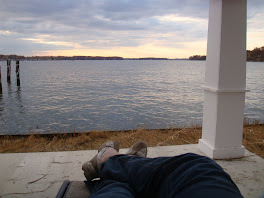Back before the end of the Cold War during the time that communism and dictators controlled Eastern Europe, my family and I lived in Munich and I spent a lot of my week days in German classes along with several refugees from Poland. I was the only American in the class and so was of special interest to these immigrants who had never had a chance to talk to an American before, or at least not freely. My German could not handle sophisticated conversations about the United States, but I did my best to give them an idea of why I was proud of my country.
One conversation focused around American holidays, and as I attempted to explain the 4th of July and Thanksgiving as being very important to Americans, one Pole said to me accusingly, "Your country does not celebrate Christmas."
I was taken aback. What one earth was he talking about? I had celebrated Christmas along with most Americans every year of my life. Then I realized he was saying that unlike Thanksgiving and Independence Day, Christmas was not a declared US national holiday, and that meant to him that the US Government was discouraging or even prohibiting the celebration of Christmas. Interesting perspective of a Christian from a communist country--that the US Government was no better than the Polish Government because neither government officially acknowledge Christmas as a national holiday.
My limited German vocabulary allowed me to explain the difference well enough that we moved on to another topic, but the conversation has stuck in my mind for almost 30 years. And while I sit here watching the NCAA men's basketball tournament, it occurred to me that Americans have created a number of secular holidays that thrive despite their lack of acknowledgment by our national government and even though not all Americans celebrate them. They are occasions when Americans get together and focus on the same thing, and occasionally their devotion rises to the equivalent of secular worship.
I know this is not a uniquely American phenomena--plenty of countries have large portions of their population who view soccer as a religion. Americans seem to have taken the concept farther than the rest, thanks to the diversity of our sports and the seasons when they are played. I've already mentioned March Madness. The Super Bowl is widely celebrated. Tailgating is a ritual at most American football games. The World Series is perhaps not so much an occasion for parties, but even Americans who are not regular season fans will devotedly watch the games. Viewers of NHL and NBA games are often more dedicated than many baseball or football fans.
Fall offers plenty of activities that can fill up more of an American's Sunday than a couple of hours of church. State, county, and street fairs, craft sales, wine festivals . . . These inexpensive opportunities to mingle, relax, listen to music, and eat unusual foods constructively occupy the time of Americans of all ethnicities and socio-economic backgrounds. And then there are charities, clubs, and classes--painting, drawing, sewing, pilates, yoga, jazzercise, tennis, swimming, golf, genealogy, books, bowling, darts, pool. Something for everybody.
What are the consequences for American cultural and society of these good times and these non-religious opportunities to develop loyalties based on sports teams and to attend gatherings to pursue common interests? It is possible that they have undercut support for organized religion by keeping people busy and constructively occupied. They can also provide a sense of community that would otherwise be sought out through membership in a church. They might result in breaking racial, ethnic, and cultural divisions.
They might also help deter political extremism and violent extremism. Is it too flip to say that just maybe if you are eagerly waiting to see who makes it into the Final Four, you are unlikely to be eagerly planning an attack on your local shopping mall?
Sunday, March 28, 2010
Musings on Holidays, Sports, and Terrorism
Labels:
American culture,
American holidays,
American sports,
community spirit,
festivals,
holidays,
March Madness,
religion,
terrorism
Posted by
Jane
at
8:09 PM
0
comments


Subscribe to:
Posts (Atom)






